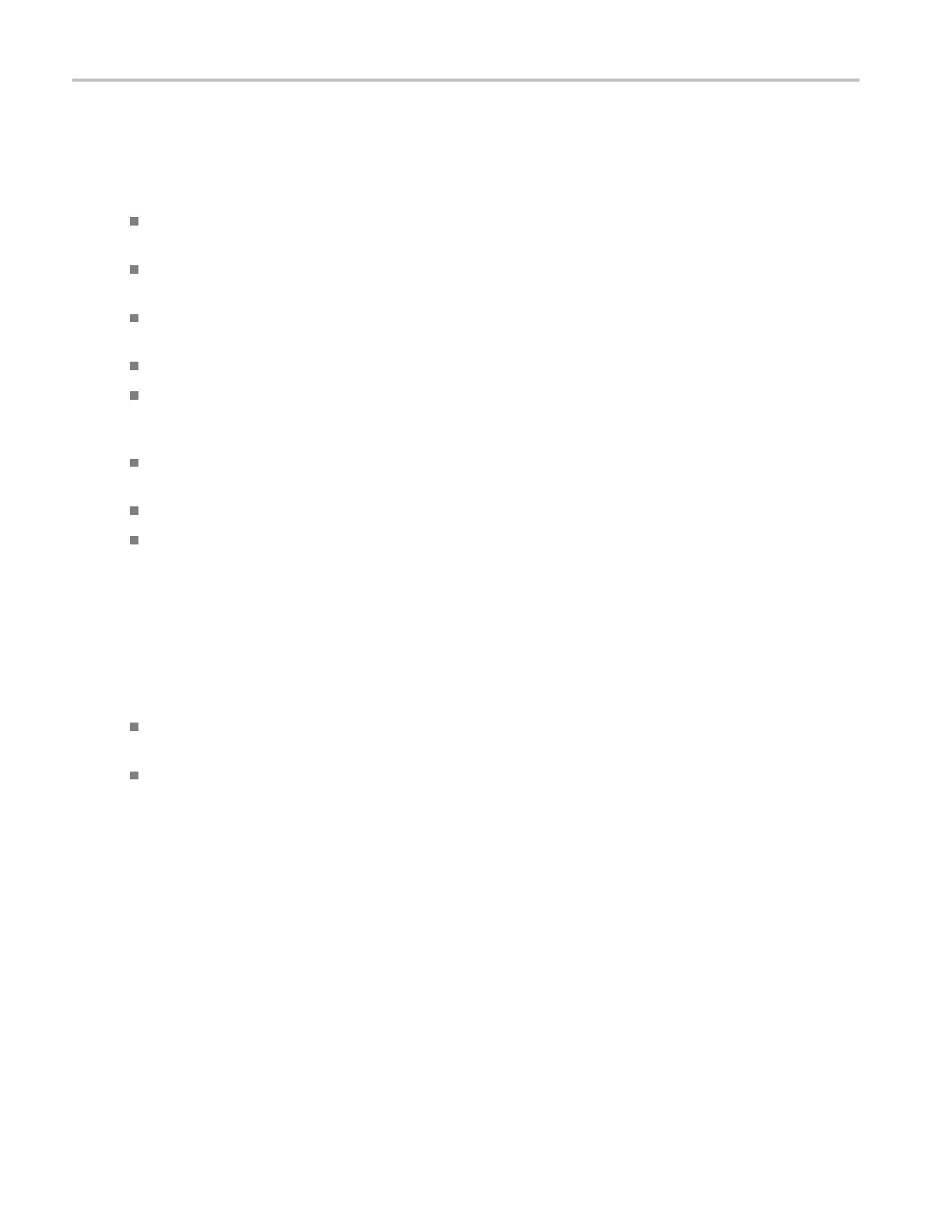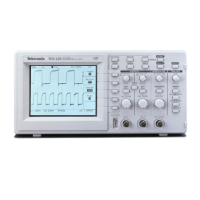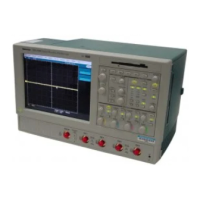Analyzing Wavef
orms
Spectral Analysis Concepts
Signals may be represented by their characteristics in both the time and the frequency domains. Spectral analysis
merges the time domain controls with the frequency domain controls to provide a complete spectral analyzer. Consider
the following when using spectral analysis:
Frequency D omain controls use traditional spectrum analyzer controls to set the center frequency, span, and resolution
bandwidth directly.
Time Domain controls for the acquired waveform set the tim e duration and the resolution time between samples. You
can easily set the required sample rate and record length.
Gating Controls are the bridge that connects the time domain to the frequency domain. You can perform spectral analysis
on a gated region of the input waveform. This gating also determines the resolution bandwidth.
Eight different window functions are available to shape the filter response.
Display log data in dB, dBm, or linear mode. You can disp lay the real or only the imaginary parts of the spectral
magnitude. Reference level offset and reference level controls give complete control over the vertical position and
offset of the s pectrum.
Display phase data as a function of frequency in radians, degrees, or group delay. You may zero the phase value for
magnitudes below a user-defined threshold level to prevent the display from becoming unusable due to random noise.
You can turn on averaging in the frequency domain for phase and magnitude waveforms.
Up to four spectral analyzers may be used simultaneously. They may all be assigned to different gates on the same
source waveform or to different channel sources. The controls of Math1 and Math2 may be locked, and the controls of
Math3 and Math4 may be locked. When controls are locked, turning a control on one analyzer changes the control
on the other analyzer to the same value. Other combinations of locking, including all four analyzers, are available
using GPIB commands.
Using the Time Controls
The time domain controls for the spectral waveform are:
Duration, which selects the time from the beginning to the end of the acquired waveform. Set duration using the
record len
gth and/or the sample rate controls.
Resolutio
n, which determines the time between samples. Duration is kept constant as resolution is changed. Therefore,
the Resolution control affects both the samp le rate and the record length simultaneously.
58 TDS6000B & TDS6000C Series Quick Start User Manual

